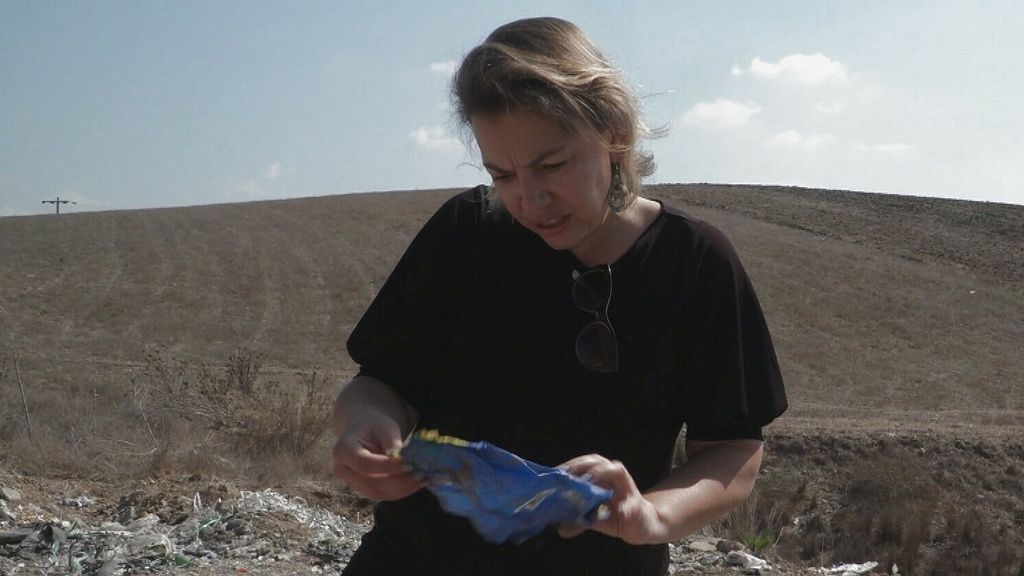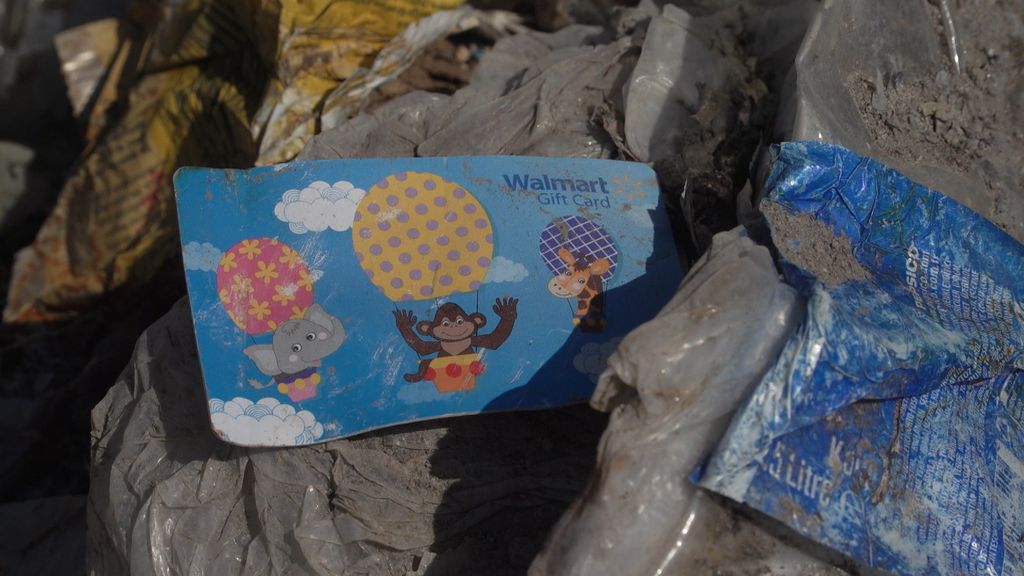NOS
NOS . News•
-
Mitra Nazar
Turkey Reporter
-
Mitra Nazar
Turkey Reporter
Bags filled with finely cut plastic lie on the side of a regional road outside Adana, Turkey. Farmer Ezzedine Akman sees it being dumped there regularly, often at night. Cut open pockets to see what’s inside.
It is not Turkish rubbish. Ackman finds remains that can be seen from other countries. Packaging pieces with text in other languages. It mainly comes from England, Germany, France and the Netherlands. “European waste,” says the farmer as he digs through the plastic pile with a stick. “It pollutes our farmland, and it puts our health at risk. Why don’t they keep their waste there?”
Reporter Mitra Nazar found plastic from Hengelo in this illegal dump:

Plastic, plastic and plastic: the Turkish city of Adana is full of it
European countries produce more plastic waste than they can process themselves. This is why millions of kilograms of plastic are exported abroad. For years, most of the waste went to China, but that country banned it in 2018. Then Turkey became an important new destination for European countries.
In Turkey, recyclers buy bales of European plastic. They melt it and make little plastic balls. Then they are used to make new products.
Researcher Sedat Gündoğdu says that much of the exported plastic waste turns out to be unclean and unsuitable for recycling when it reaches Turkey. “Recycling plastic is an illusion. In fact, only about 3 percent of all plastic is truly recyclable.”
In 2019, Gundogdu first found foreign waste dumped in fields around Adana. As a marine biologist at Adana University, he investigated the cause of pollution of the sea coast of Mersin and Adana. He began to identify where the waste was being dumped and where it was coming from. “It enters the sea through rivers. Our coast is the most polluted around the Mediterranean.” He found foreign waste at dozens of different locations in and around the city.
dishwasher salt
In the spring of 2021, the Turkish government imposed a ban on the import of most plastic waste. Eight days later, the ban was lifted, possibly under pressure from the recycling industry. Stricter import rules were introduced in place of the ban, but the plastic waste trade was allowed to continue. According to Turkey’s environment minister, waste is no longer disposed of and incinerated. Activists and media are accused of using old photos and videos, and Posting pictures myselfand clearing the fields.
During our visit to Adana, we found burning plastic on roadsides, along provincial roads and rivers, and in fields outside the city. Locals say new waste is still dumped regularly. In the Karahan region, we find countless scraps of packaging from European countries.
There is a bag of dishwasher salt from the Dutch brand Broxomatic next to the Haribo package with ingredients in Dutch. Remains of a Jacobs coffee can with text in German. There is also waste from New Zealand, the United States and Israel.
The rules for exporting plastic waste have also been tightened in the European Union. It did not reduce imports of unsuitable plastic. Last year, much more plastic went to Turkey than in previous years.
In 2021, the European Union exported 33 million tons of plastic waste to countries outside the European Union, a 77 percent increase from 2004. Half of that went to Turkey. Germany is the largest waste exporter, followed by the Netherlands. The latest figures show significant growth in Dutch waste exports for this year. The Netherlands sends most of its plastic products to Indonesia and Vietnam, followed by Turkey, this year at about 8.3 million kilograms per month.
There are also overruns in factories where plastic is sorted and melted. Human Rights Watch did Recent Research. Workers and local residents are exposed to toxic substances released when plastic melts. Many of the workers are Syrian and Afghan refugees, and some are minors.
Toxic smoke clouds
In Adana, hundreds of recycling companies are located in the middle of residential areas. Fires break out regularly, leaving clouds of toxic smoke hanging over the neighborhood. There is an atmosphere of fear. Staff and local residents dare not speak to journalists and researchers about the conditions in which they work and live.
According to Human Rights Watch, the Turkish government should take tougher measures. The report also indicates which countries the waste comes from. “Europe’s richest countries ship their plastic waste to Turkey, where it poses significant risks to the most vulnerable, including children and refugees, and leads to serious health problems and environmental damage.” The researchers concluded that “EU countries should take responsibility for their plastic waste and stop exporting it to Turkey.”
The Gondogodo ladies agree. He even talks about the loss of colonialism. “It’s an environmental injustice. In the Netherlands you won’t find plastic waste in the lawns. But you can see the dark side here with us.” He says it is impossible to control the waste industry. For years, INTERPOL has been investigating illegal practices in the international waste trade. “The only solution is a ban, like China has imposed.”
Farmer Ezzedine Akman looks frightened by the mixed plastic bags already mixing with the soil on the side of the road. There are few people who would dare to speak openly about the waste problem, but he’s not afraid of it, he says. “I want to leave a clean world for my children.”







